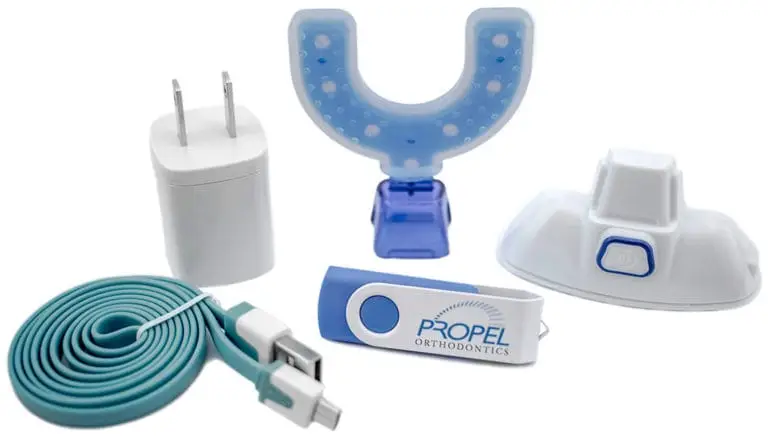
Accelerated Invisalign – Propel’s VPro5
Diamond Braces is happy to offer its patients VPro5 by Propel Invisalign, the latest tool that helps to straighten your teeth quicker.
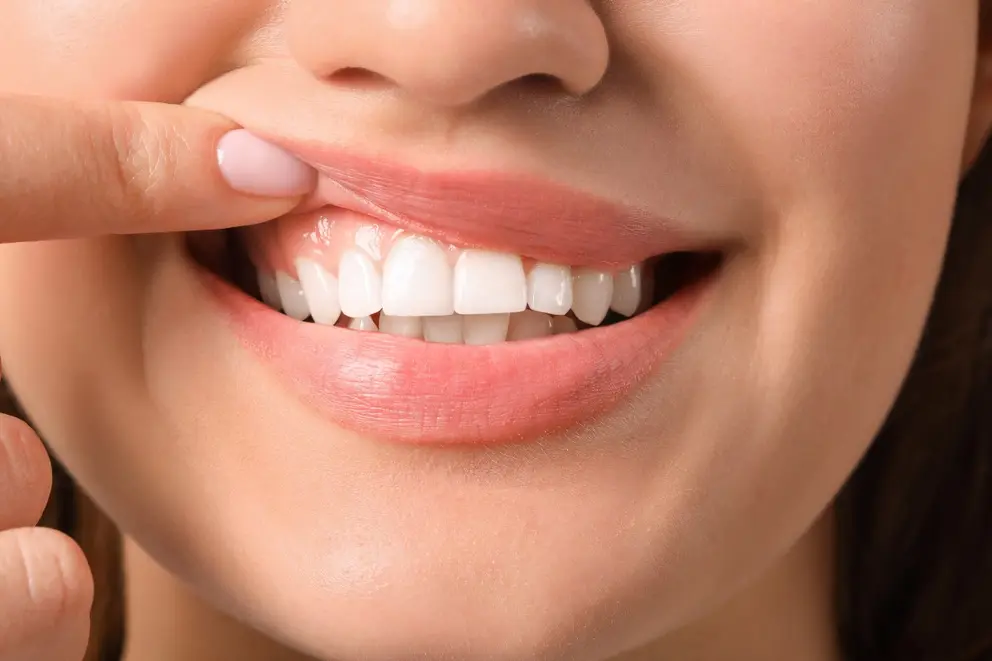
Are You Worried About
One of the big perks of removable clear aligners for many patients is the gentler relationship between the appliance and their teeth. As they’re not a fixed appliance like braces, they do not require:
Rather than pull the teeth into alignment, aligners gently push them into alignment, meaning that they exert less force (and subsequently result in less soreness) than traditional braces. Even so, does that same gentler relationship apply to the gums? Learn more about clear aligners and whether or not they help (or hinder) the gums.
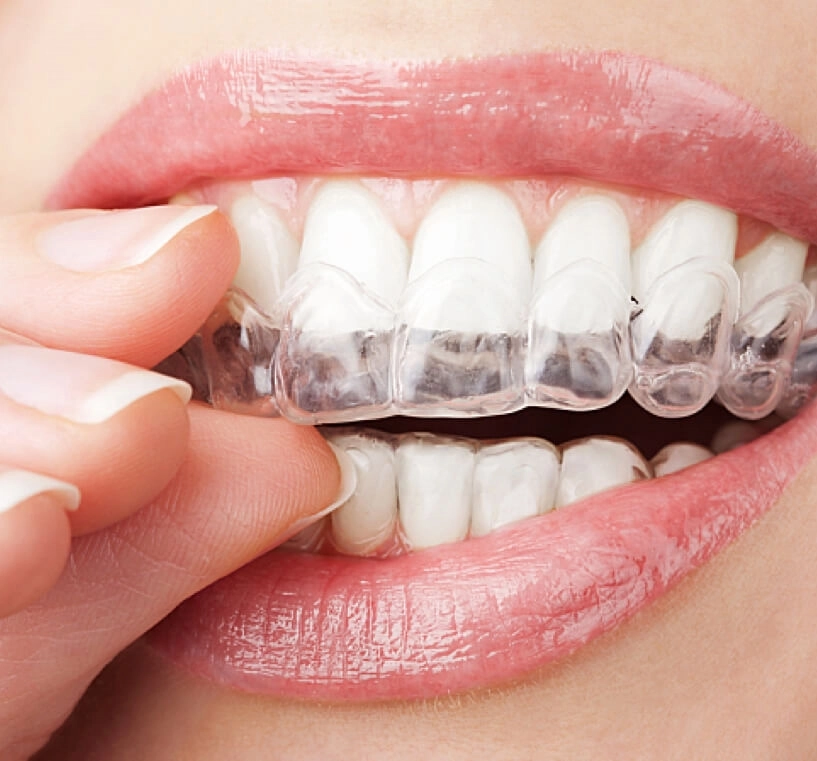
Can Aligners Cause
Gingival recession is a common problem among adults over the age of 40, but not one which should be taken lightly by younger patients. Recession refers to the loss and retraction of gum tissue, exposing the roots of the teeth and leaving them more vulnerable to sensitivity. This in turn can result in a troubling manifold of other problems, including:
If you’re wondering whether or not aligners would play a role in this discomfort, the good news is that they most certainly do not as long as your treating doctor does understand the limitation of orthodontic treatment and how that affects the gum tissue.
Clear aligners gum recession risk is not monitored properly. The periodontal ligament tissue requires time to adapt to the new positioning of teeth, which is why the same clear aligners are used for several weeks. This is crucial for teeth stabilization. However, if aligners were to cause gum wear, they would hinder this process.
During the initial consultation, if your orthodontist detects gum recession, they will aim to resolve it before beginning clear aligner treatment. This may involve deep cleaning the affected areas, administering antibiotics, or even recommending oral surgery to address the issue.
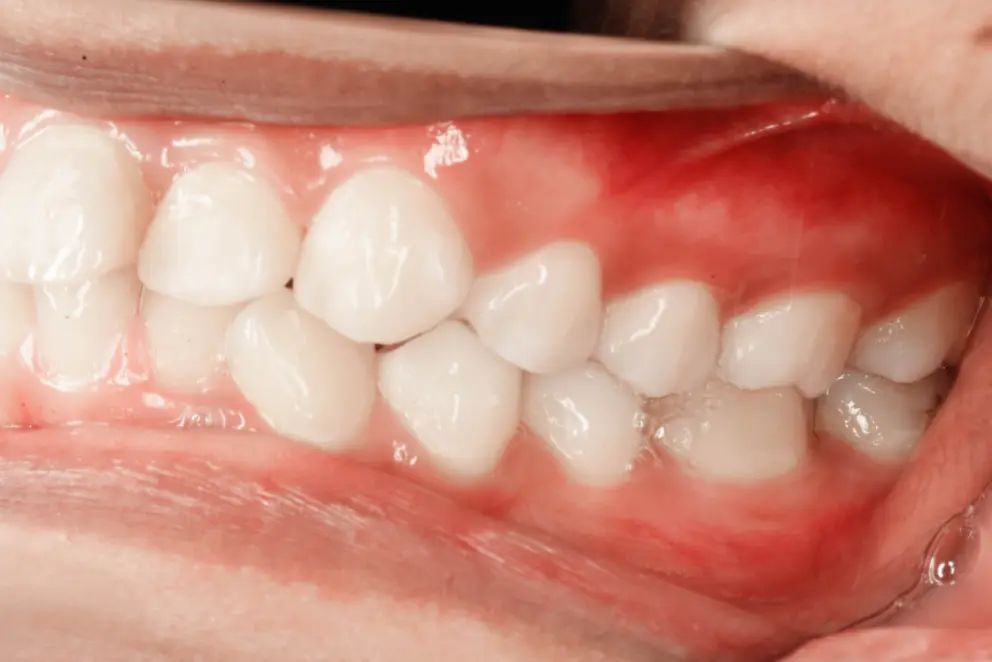
Can Aligners
Periodontal disease is a common oral health issue — and especially so later in life. According to the CDC, nearly 50% of adults aged 30 and older suffer from some form of periodontal disease, and that figure increases to 70% in adults older than 65. However, aligners are not a direct cause of this issue.
Clear aligners need careful cleaning, just like braces. While they don't trap much food, they can still affect your gums and teeth. This is because aligners create a barrier that reduces saliva contact with your gums and teeth.
It's important to ask: "Do clear aligners cause gum disease?" Good hygiene can prevent such problems.
Schedule a Periodontal ConsultationThis saliva plays an essential role, demineralizing the teeth and protecting the mouth with antibacterial agents. If you’re not careful, aligner wear could indirectly exacerbate the risks of developing periodontal disease. But despite all of that, it would be a misnomer to say clear aligners could directly cause gum disease.
It would also be a misnomer to say that clear aligners directly help counteract the effects of periodontal disease. The most important factor when reigning in gum disease is not the appliance, but the appliance wearer’s compliance and cleanliness. Like severe recession, your orthodontist may want to address severe periodontal disease and attempt to reign it in before clear aligner treatment.
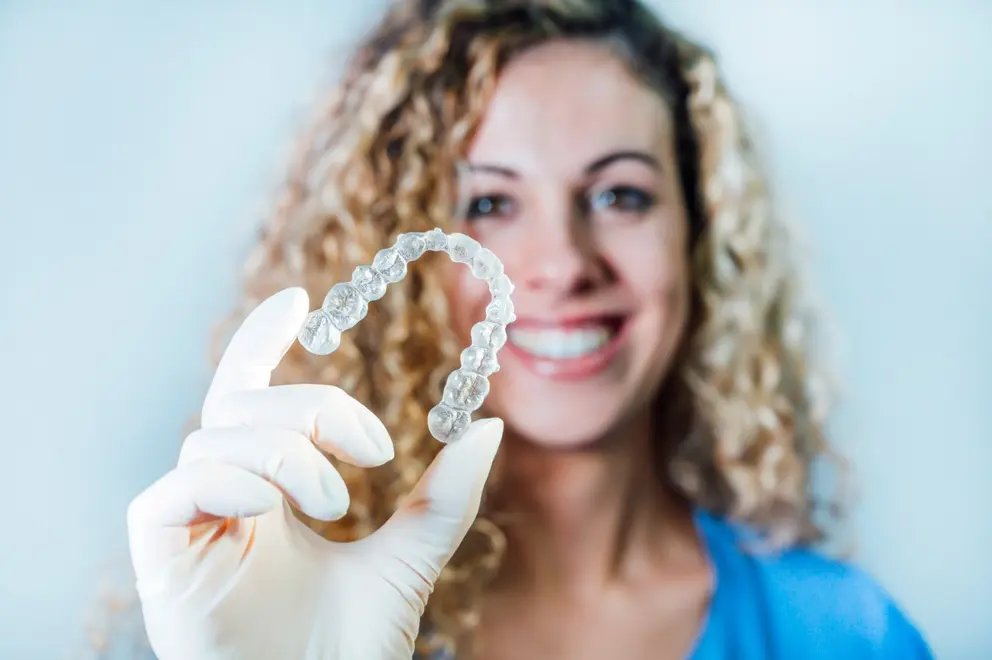
Do Aligners Make Your Gums Bleed?
Wearing Invisalign aligners can sometimes cause moderate gum bleeding and inflammation. This often happens during the first few days of using a new tray. The aligners' movement may lead to gum tissue sensitivity and bleeding, particularly where the movement is most intense. Neglecting proper dental care at home can also result in bleeding.
Additionally, the edges of Invisalign trays might rub or scratch against mouth surfaces, leading to discomfort. To maintain gum health, it is important to regularly clean your aligners. For more information, refer to an "Invisalign Gum Health Guide". This guide will help ensure the best care for your gums while using Invisalign.
To prevent gum disease, it's important to maintain proper oral hygiene while using aligners. Regular brushing and flossing can help reduce the risk of bleeding gums. For more information, you can refer to our "Aligners and Gum Bleeding FAQ". This guide offers tips and advice for handling these issues effectively and keeping your gums healthy during your aligner treatment.
To maintain good oral hygiene while using aligners, you can adjust them for comfort. You may trim, cut, or flatten the edges. This helps in managing your aligners better.
If you experience deep, persistent bleeding or inflammation, it's often due to poor oral hygiene. This could indicate a serious issue like periodontal disease.
Even when you're diligent in cleaning your set of aligners, these problems can arise. It's essential to regularly clean your aligners using a soft-bristled toothbrush. This is as crucial as brushing your teeth regularly.
Traditional metal braces, lingual braces, and other methods to straighten your teeth work by moving the teeth. However, aligners can trap food debris. Therefore, maintaining good oral hygiene is vital in any teeth-straightening method.
If you’re struggling with gum issues while wearing aligners, don’t be afraid to consult an experienced orthodontist for help.
Consult an Orthodontist for Gum Issues